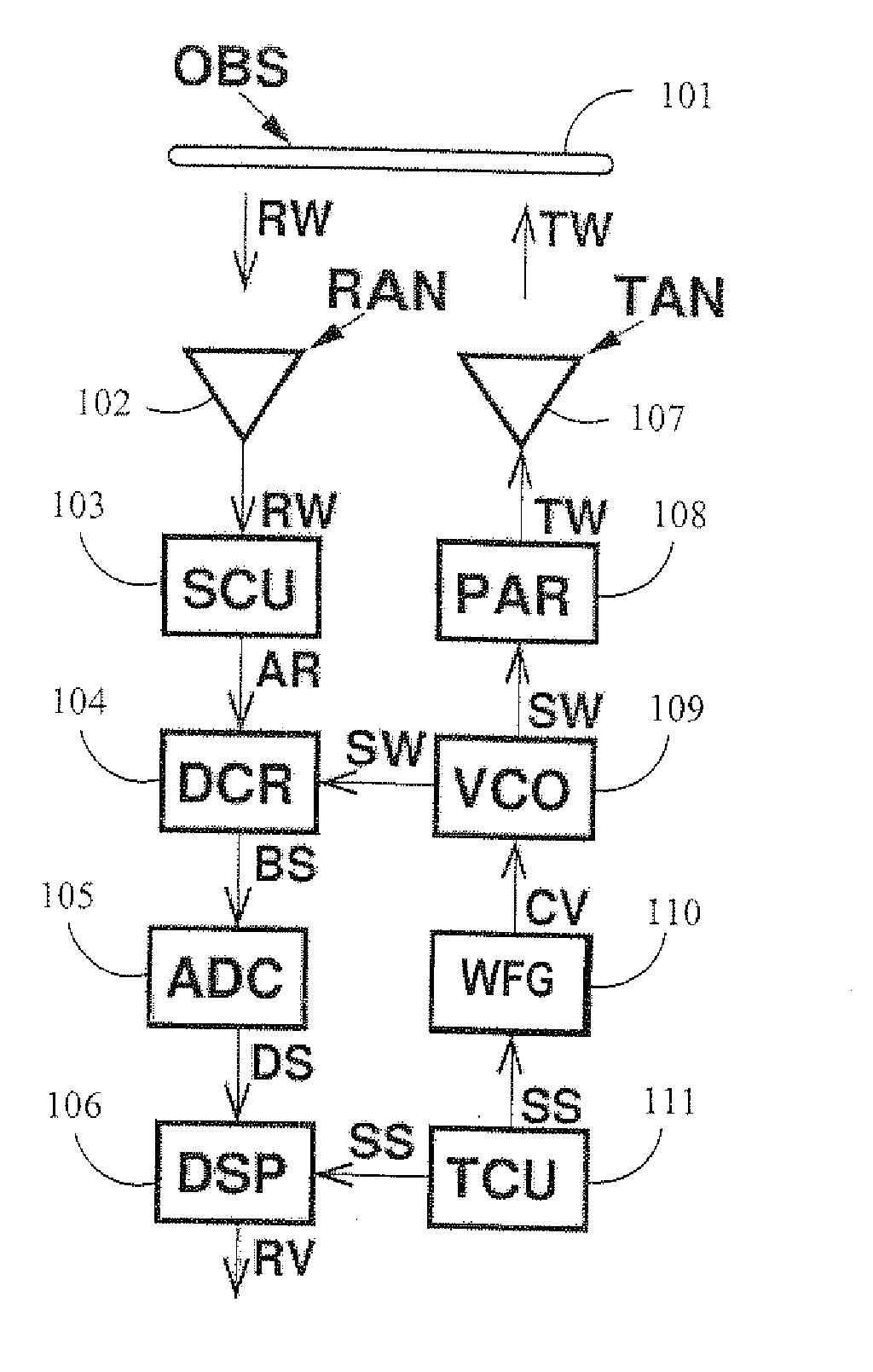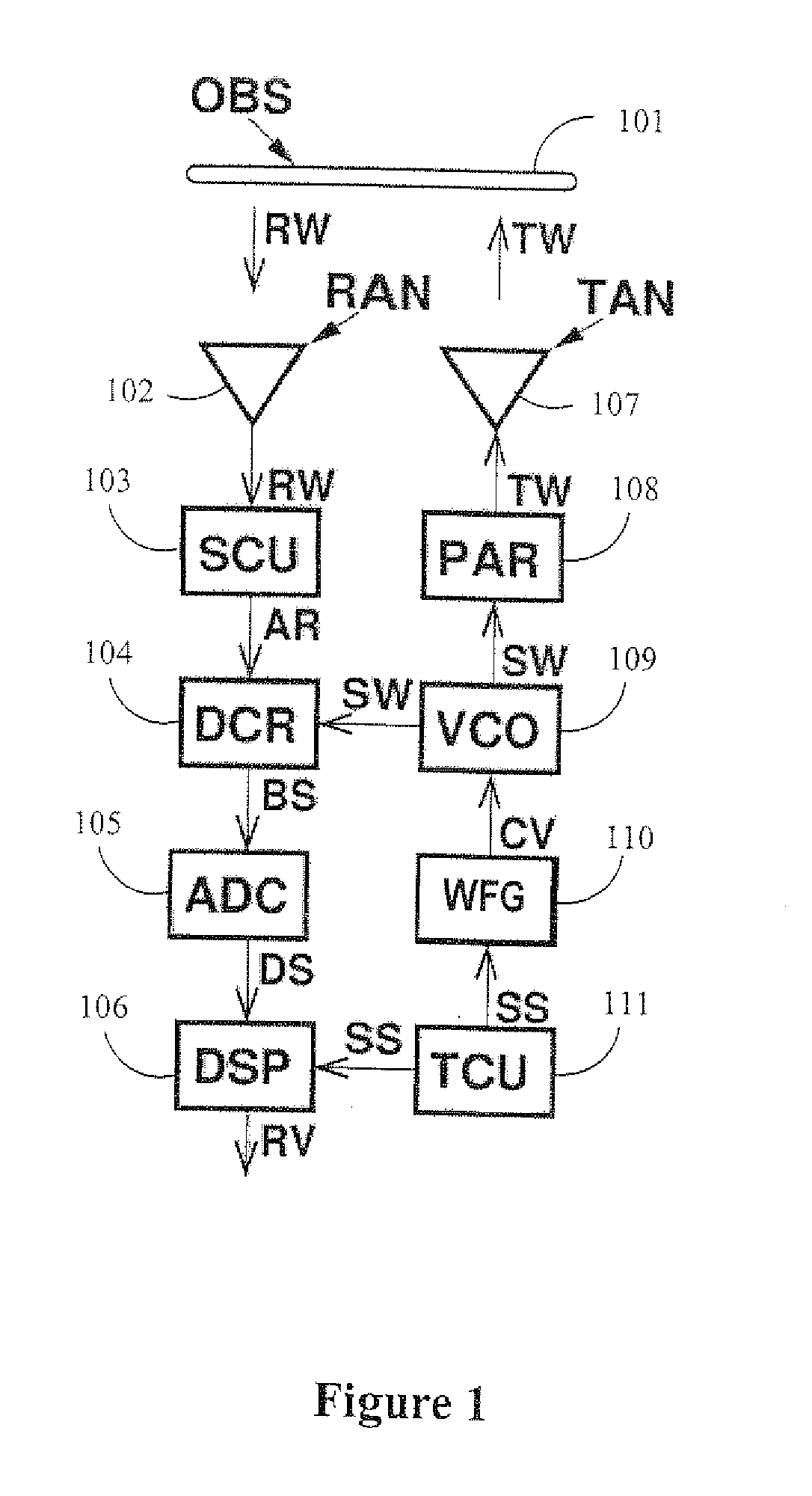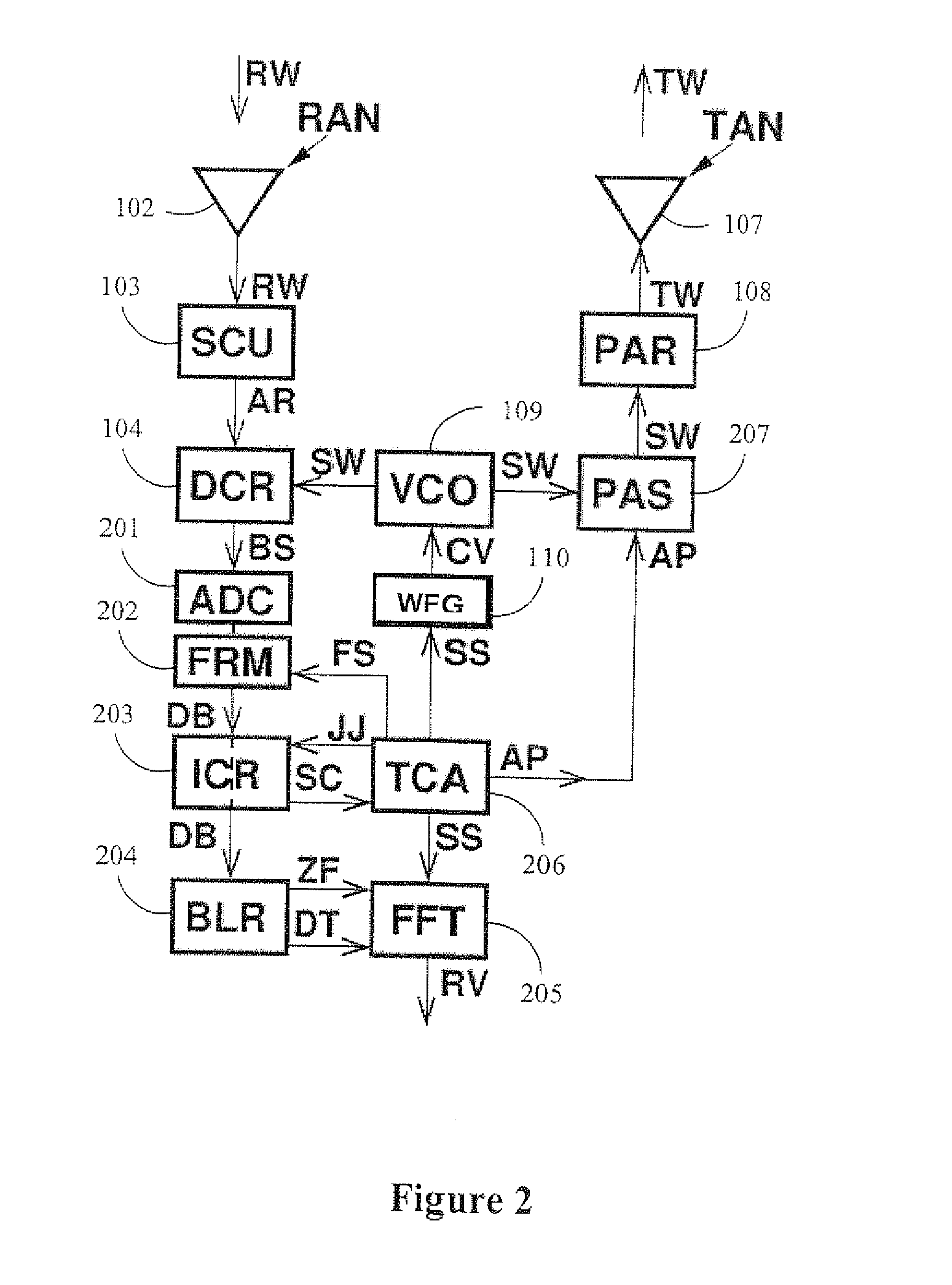Automotive radar with radio-frequency interference avoidance
a technology of radio frequency interference and radar system, which is applied in the direction of using reradiation, measuring devices, instruments, etc., can solve the problems of unreliable obstacle detection, poor estimation of ramie and velocity, and high cost of vehicle maintenance and repair, so as to suppress man-made interference and improve the estimation of range and velocity in the automotive fmcw radar system.
- Summary
- Abstract
- Description
- Claims
- Application Information
AI Technical Summary
Benefits of technology
Problems solved by technology
Method used
Image
Examples
example configuration
[0219]An example configuration of an interference classifier ICR 203 for implementing the above-described advantageous interference classification is described below.
[0220]FIG. 9 is a functional block diagram of the interference classifier ICR 203. The classifier ICR 203 comprises the following blocks:[0221]a data buffer BFR 802[0222]a normaliser NRM 804[0223]a scale factor calculator SCL 803[0224]a nonlinear transformer NLT 805[0225]an averaging circuit AVG 806[0226]a comparator CMR 807.
[0227]The operation interference classifier ICR 203 is described below.
[0228]A number K of signal samples x1, x2, . . . , xk, . . . , xK forming a data block under examination are transferred via input BX to the data buffer BFR 802.
[0229]Samples, available at output XX are used by the scale factor calculator SCL 803 to determine a scale factor SC, such as the mean absolute deviation MA or the standard deviation SD. The selected type of normalisation is set via input ST of the scale factor calculator...
PUM
 Login to View More
Login to View More Abstract
Description
Claims
Application Information
 Login to View More
Login to View More - R&D
- Intellectual Property
- Life Sciences
- Materials
- Tech Scout
- Unparalleled Data Quality
- Higher Quality Content
- 60% Fewer Hallucinations
Browse by: Latest US Patents, China's latest patents, Technical Efficacy Thesaurus, Application Domain, Technology Topic, Popular Technical Reports.
© 2025 PatSnap. All rights reserved.Legal|Privacy policy|Modern Slavery Act Transparency Statement|Sitemap|About US| Contact US: help@patsnap.com



